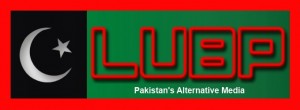Over the last few months, I have engaged in a series of conversations with Pakistani writers and academics through mutual friends. These talks have been a rare and fascinating opportunity to see their country through their eyes rather than through Western media sources. We’ve discovered some surprising common concerns and a mutual desire to stay in touch. We would like to write posts occasionally for one another so that our audiences can share these understandings as well. The following is an introduction by Abdul, one of the participants, who writes his own blog tackling the stories of Pakistan that are seldom told abroad. Here he describes his site and his interest in our dialogue – I wrote a similar introduction last week for his readers.
By Abdul Nishapuri
First of all I would like to send my appreciation to my friends Paul Rockower and Waleed Ziad in particular, for inviting us to engage in people-to-people contact between Pakistanis and Israelis.
I would also like to thank Dahlia Scheindlin (of +972 Magazine) for her recent post in this series in which she has outlined the need for such a dialogue between the two countries.
Let’s start with a brief introduction of the web magazine Let Us Build Pakistan (LUBP).
LUBP presents itself as Pakistan’s alternative media and is known for its non-mainstream views and discourses on issues of human rights, democracy and politics. It is a voluntary project and not sponsored or affiliated with any religious or political group. It continues to publish on topics or positions that are considered taboos in Pakistan’s mainstream society and politics.
Given the increasing dominance of the Saudi-sponsored Wahhabi-Deobandi extremist ideology and the brutal treatment of dissenting voices of journalists and scholars by the military state, many of our contributors use pen names as a precaution for their personal safety.
Therefore, it was relatively easy for us to engage with Dahlia, and freely discuss our views on the informal contact between the two countries. From the Pakistani side, we have been able to express such views without any fear of reprisal from religious fanatics, politically correct political parties and repressive military apparatus.
What do we seek to gain from this dialogue? Here are a few things that come to my mind:
1. To develop a genuine people-to-people contact (instead of State-sponsored and State-controlled, elitist, shallow contact) between Israel and Pakistan;
2. To make the people of Pakistan aware that there exists an Israel which is much different and larger than the one seen through the narrow Saudi Arabian or Iranian lenses frequently used in Pakistan;
3. To make the people of Israel aware that Pakistani society can be much more inclusive and tolerant if liberated from the shackles of Islamism which, in Pakistan, is mainly sponsored by Saudi Arabia and the tiny but financially powerful Sheikhdoms of the Persian Gulf;
4. To make people of Pakistan aware that there are bold voices in Israel which oppose the occupation and seek a political resolution. Pakistanis can learn about the diversity of approaches, and open dialogue among those committed to ending the occupation.
5. To make the people of Israel aware of the extreme brutalities that certain ethnic and religious groups (Balochs, Pashtuns, Shias, Ahmadis, Christians, Hindus, etc.) in Pakistan are currently facing at the hands of the military state and its Jihadist and Islamist proxies.
6. To make the people of Pakistan aware of the internal religious and political diversity of the people of Israel;
7. To make the people of Israel aware of how mainstream media (both Pakistani and international media) twists and misrepresents certain news about Pakistani society and its people;
In reaction to a question on my Facebook and Twitter, the response to the prospects of Pakistan-Israel dialogue has been clearly positive. Out of a total of 76 feedbacks that I received, 90 percent were in support of the dialogue while less than 10 percent expressed concerns due to political reasons and clouded judgement, e.g., “Israel is an illegitimate State,” “Jews cannot be our trusted friends,” “Israel is an occupier” etc.
Therefore, it is imperative that we have this dialogue. I cannot speak for my friends in Israel but amongst upper-middle class Pakistanis (including expats), there is a mindset that has internalized opposition to Israel’s policies. The resulting conspiracy theory laden mindset and borderline anti-Semitism has prevented many Pakistanis from having a much needed dialogue – a dialogue that will only help in clearing the resentment and understanding each other.
I am aware that our friends at +972 have always wanted to bring the voices of both Israeli and Palestinian communities. Thus our contact is also an opportunity for Pakistanis to encounter both Israeli and Palestinian communities.
At LUBP, we value diversity and heterogeneity – both of opinion and of the social makeup of Pakistan. At the time of Partition in 1947, there were significant Jewish communities in Pakistan – especially in the metropolis of Karachi. Their subsequent departure, along with that of other targeted groups, has damaged our social fabric and pluralist society. We hope that we can rebuild a Pakistan in which people of all faiths and ethnic backgrounds feel equally valued and included. Acceptance of difference is consistent with our egalitarian interpretation of Islam and is also an integral part of the tolerant culture of the Subcontinent.
Overall, we are very excited to build such a relationship between Pakistani and Israeli and Palestinian bloggers. We understand that members of this dialogue in their respective countries may be subject to harsh criticism. However, as an alternative media outlet we are willing to accept such challenges which will only strengthen our resolve to develop better understanding between our nations. Long live Pakistan, Israel and Palestine.
About the author: Abdul Nishapuri is founder-editor of Let Us Build Pakistan (LUBP), Pakistan’s leading blogzine with a specific interest in building a democratic, progressive and inclusive society. He tweets at @AbdulNishapuri


